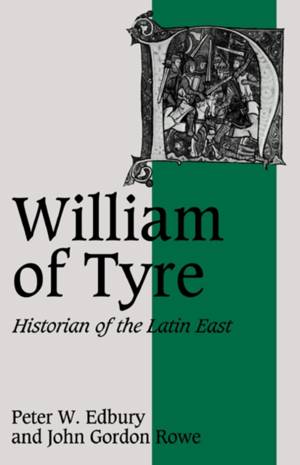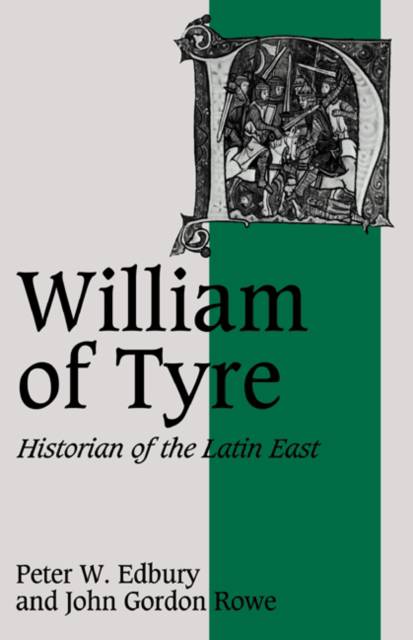
- Afhalen na 1 uur in een winkel met voorraad
- Gratis thuislevering in België vanaf € 30
- Ruim aanbod met 7 miljoen producten
- Afhalen na 1 uur in een winkel met voorraad
- Gratis thuislevering in België vanaf € 30
- Ruim aanbod met 7 miljoen producten
Zoeken
Omschrijving
William, archbishop of Tyre from 1175 to c.1184, was a churchman, royal servant and scholar who lived in the Latin Kingdom of Jerusalem. Born in Jerusalem around 1130, he studied in western Europe for almost twenty years until 1165, when he returned to the East to begin his career in public life. He left to posterity a monumental history in which he described the events of the First Crusade (1095-9) and recorded the fortunes of the western rulers of the states subsequently founded in Syria and the Holy Land down to his own day. The value of his work as an example of twelfth-century historiography and as a source of information for the events described has long been recognized. In this study the authors consider William as a public figure and historian, and examine the influences which bore upon his writing and the way in which he fashioned his material. They then go on to examine what he had to say about certain topics - the monarchy in Jerusalem, the Church, the papacy, the Byzantine empire and the Crusade - and why he wrote as he did.
Specificaties
Betrokkenen
- Auteur(s):
- Uitgeverij:
Inhoud
- Aantal bladzijden:
- 200
- Taal:
- Engels
- Reeks:
- Reeksnummer:
- nr. 8
Eigenschappen
- Productcode (EAN):
- 9780521407281
- Verschijningsdatum:
- 29/03/1991
- Uitvoering:
- Paperback
- Formaat:
- Trade paperback (VS)
- Afmetingen:
- 137 mm x 214 mm
- Gewicht:
- 226 g

Alleen bij Standaard Boekhandel
+ 83 punten op je klantenkaart van Standaard Boekhandel
Beoordelingen
We publiceren alleen reviews die voldoen aan de voorwaarden voor reviews. Bekijk onze voorwaarden voor reviews.











